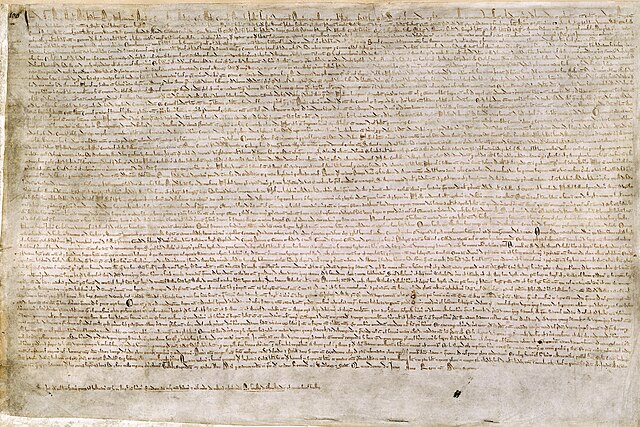The Petition of Right, passed on 7 June 1628, is an English constitutional document setting out specific individual protections against the state, reportedly of equal value to Magna Carta and the Bill of Rights 1689. It was part of a wider conflict between Parliament and the Stuart monarchy that led to the 1638 to 1653 Wars of the Three Kingdoms, ultimately resolved in the 1688-89 Glorious Revolution.
The Petition of Right
Sir Randolph Crewe, the Chief Justice of the King's Bench, who was dismissed by Charles I for refusing to declare the "forced loans" legal
Sir Edward Coke, former Chief Justice who led the Committee that drafted the Petition, and the strategy that passed it
Charles I, ca 1628
Magna Carta Libertatum, commonly called Magna Carta or sometimes Magna Charta, is a royal charter of rights agreed to by King John of England at Runnymede, near Windsor, on 15 June 1215. First drafted by the Archbishop of Canterbury, Cardinal Stephen Langton, to make peace between the unpopular king and a group of rebel barons, it promised the protection of church rights, protection for the barons from illegal imprisonment, access to swift and impartial justice, and limitations on feudal payments to the Crown, to be implemented through a council of 25 barons. Neither side stood by their commitments, and the charter was annulled by Pope Innocent III, leading to the First Barons' War.
Cotton MS. Augustus II. 106, one of four surviving exemplifications of the 1215 text
King John on a stag hunt
A mural of Pope Innocent III, c. 1219
The Articles of the Barons, 1215, held by the British Library








